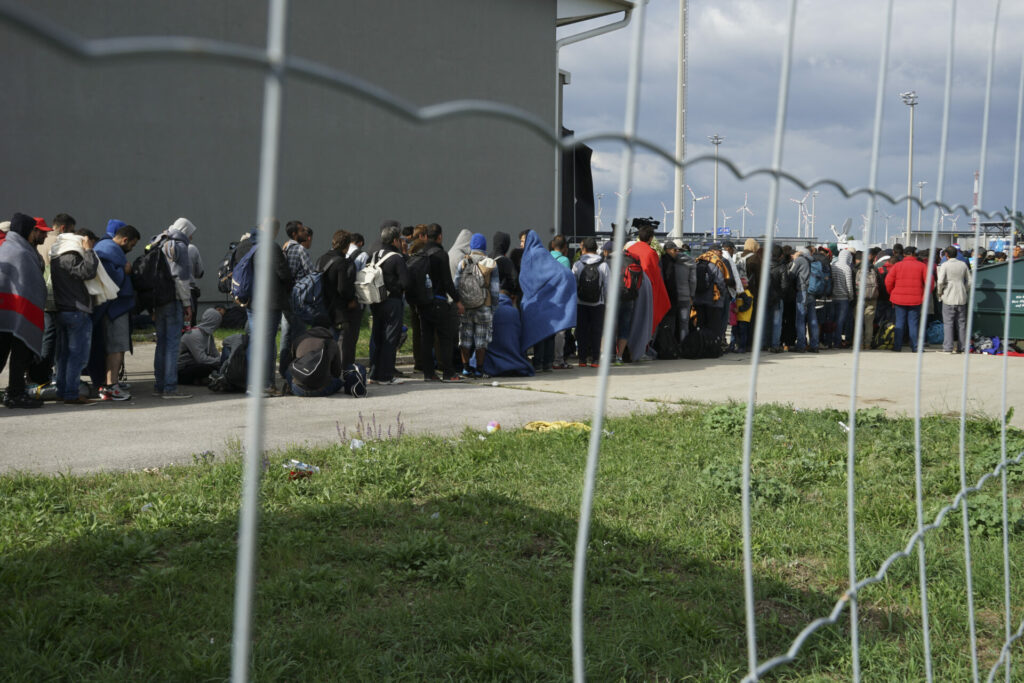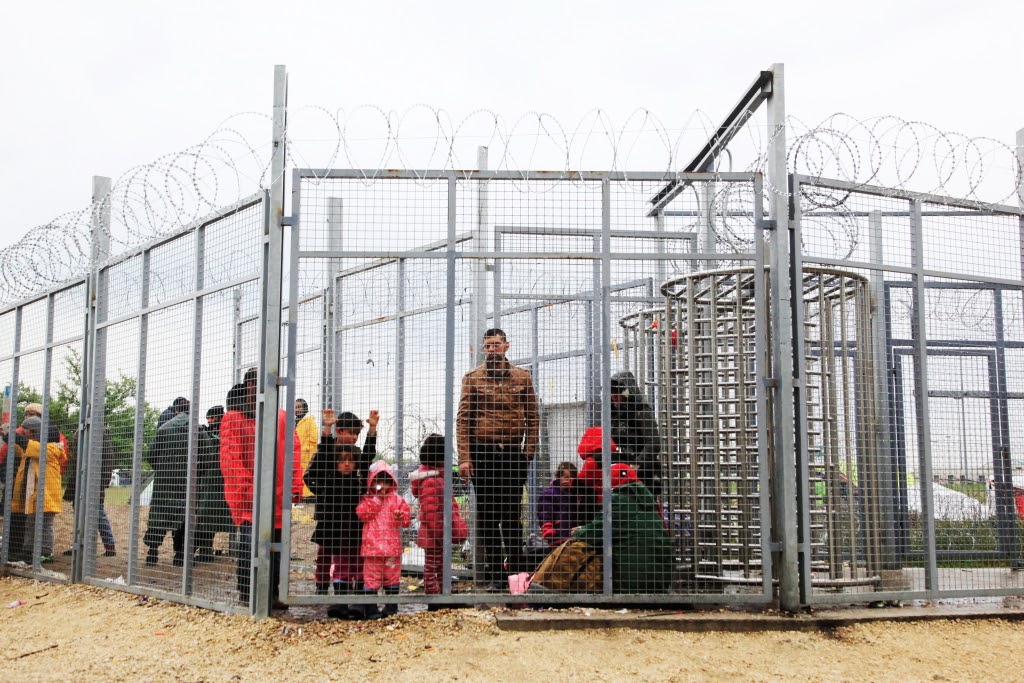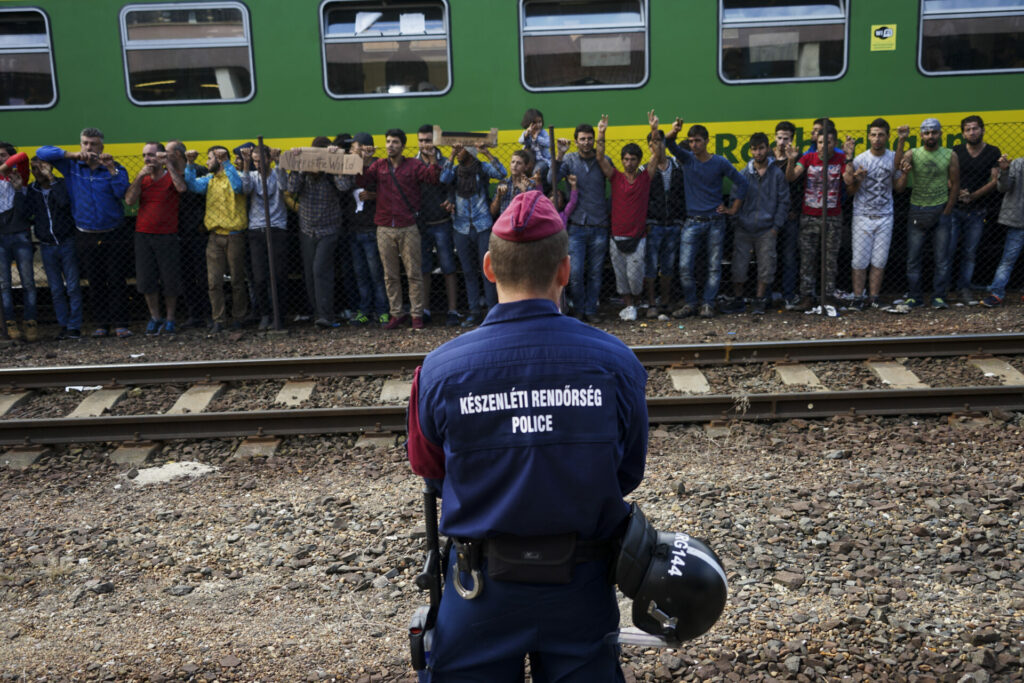From physical ill-treatment to illegal detention, countries at the EU's borders are still committing gross human rights abuses in their treatment of foreign nationals, as revealed in the Council of Europe's new report which was presented in Brussels.
The Council of Europe’s Committee for the Prevention of Torture (CPT) found numerous examples of the ill-treatment of foreign nationals at the EU’s land and sea borders based on visits to immigration centres with “appalling conditions” close to those borders.
"The CPT has identified clear patterns of physical ill-treatment against foreign nationals in the context of pushback operations, mainly consisting of people being punched, slapped, or blown with truncheons by police, border or coast guards," the group's annual report stated.
Sometimes, agents remove their identification tags and police insignia to hide their identity. They also deployed other forms of inhuman and degrading treatment, such as firing bullets close to the people on the ground, pushing them into rivers, removing their clothes and shoes, and forcing them to walk across the border, naked and barefoot.

A line of Syrian refugees crossing the border of Hungary and Austria on their way to Germany. Hungary, Central Europe, 6 September 2015. Credit: Mstyslav Chernov / Creative Commons
"The use of unmuzzled dogs to threaten or even chase foreign nationals and deprivation of food and water for prolonged periods were frequently reported," the CPT stressed.
No excuses despite challenges
The CPT recognised that some countries as Europe's external borders are confronted with large migration flows because of their geographical situation, and face disproportionate challenges, especially as a result of the currently limited burden-sharing across the EU.
"But this does not mean they can ignore their human rights obligations," said CPT President Alan Mitchell.
In Bulgaria, one of the countries with a higher number of arrivals, a young Syrian refugee was shot with live ammunition by the country's border guards when trying to cross the European Union (EU) external border, highlighting the danger faced by those seeking international protection.
Asylum-seekers in Bulgaria also continue to be routinely detained. In several EU countries, the CPT found "extremely poor conditions of detention," expressing particular concern about families with children and unaccompanied children, who were often held in conditions that "could amount to inhuman or degrading treatment."

Hungary's border fence with Serbia. Credit: Rebecca Harms / Flickr
To address this, the CPT has repeatedly underlined the need for a concerted European approach.
The European Parliament this week defined its position on a new EU asylum and migration management regulation, including the Regulation on Asylum and Migration Management (RAMM), which aims to replace the current Dublin Regulation through a new "solidarity mechanism."
This would result in Member States under "migration pressure" receiving voluntary help from others, including financial or material aid. However, critics have argued that a mandatory dispersal mechanism is needed from the start, to prevent the burden from falling on border countries as is the case now, and a continuation of such inhuman treatment of people at borders.
Proof of pushbacks
The committee also noted the increasing numbers of people who claimed to have been subject to “pushbacks,” referring to the violent removal of people by force during interceptions at sea, in transit zones at border crossings, at police and border guard stations, or following apprehension near land borders.
These are against European and international law, which states that people have the right to seek asylum because they may be at risk elsewhere.
This was also confirmed in a recent report by 11.11.11, the Flemish coalition for international solidarity, which said at least 225,533 pushbacks of migrants were carried out at Europe's external borders last year, killing at least 77 people.
This organisation noted that these violent pushbacks have been “a systematic part of border management in just about every country on Europe's external borders for several years.”
Related News
- Suicide and neglect: Schaerbeek squat evacuation deemed 'total failure'
- Migration: Fortress Europe to be strengthened, Belgian PM calls approach 'correct'
The CPT on Thursday called on European governments to protect foreign nationals deprived of their liberty under immigration legislation from any ill-treatment and put an end to pushbacks at land or sea borders.
It added that countries should reinforce safeguards, such as keeping individualised custody records and recording border control activities to significantly reduce the risk of ill-treatment.
Finally, as very few investigations of such incidents in the context of pushbacks were carried out, it called for allegations to be more effectively investigated and that officials found to be responsible are subject to adequate disciplinary and criminal law sanctions.

